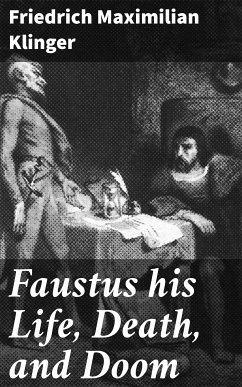In "Faustus his Life, Death, and Doom," Friedrich Maximilian Klinger delves into the profound themes of ambition, desire, and the human condition through the lens of the classic Faustian narrative. Written in the late 18th century, Klinger'Äôs play offers a dramatic reinterpretation of the Faust legend, engaging readers with its rich language and emotive characterizations. The work reflects the Sturm und Drang movement, emphasizing individual struggle against societal constraints, and exploring the dualities of enlightenment and darkness. Klinger's exploration of moral ambiguity captivates audiences, rendering the timeless tale of Faust both compelling and cautionary as it navigates the thin line between aspiration and despair. Friedrich Maximilian Klinger, a prominent figure within the Sturm und Drang movement, was influenced by his own experiences in a rapidly changing society where ambition often came at a cost. Born in 1752, Klinger faced personal and ideological challenges that reshaped his worldview. His engagement with German romanticism and its cultural zeitgeist fueled his desire to probe deeper moral questions in his works, setting the stage for this distinctive retelling of the Faustian mythos. This work is highly recommended for readers interested in the complexities of human ambition and moral dilemma. Klinger'Äôs thoughtful narrative and poetic style invite contemplation, making "Faustus his Life, Death, and Doom" an essential read for anyone intrigued by the intersection of literature and philosophy in the quest for true understanding.
Dieser Download kann aus rechtlichen Gründen nur mit Rechnungsadresse in A, B, BG, CY, CZ, D, DK, EW, E, FIN, F, GR, H, IRL, I, LT, L, LR, M, NL, PL, P, R, S, SLO, SK ausgeliefert werden.









